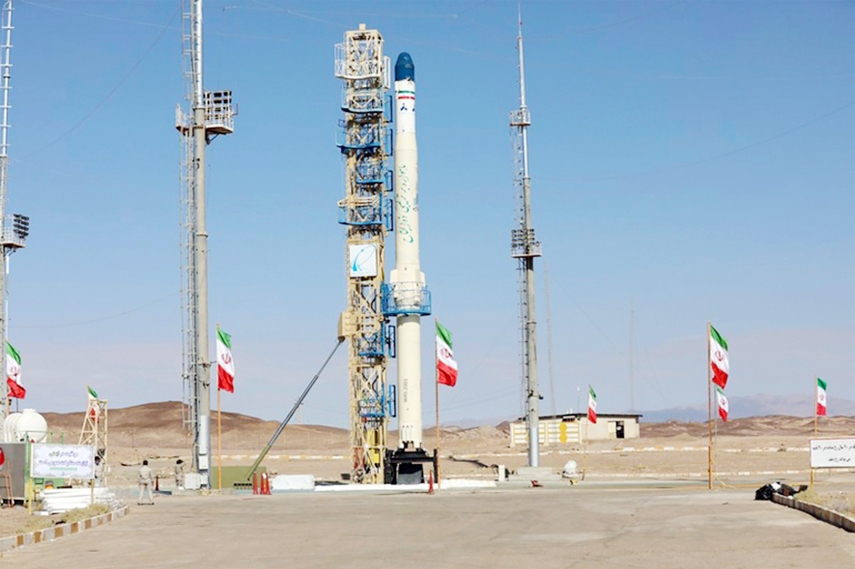
Al Jazeera :
Iran has launched a satellite carrier rocket bearing three research devices into space, according to state media, as difficult negotiations over its tattered nuclear deal with world powers continue in Vienna.
The reports on Thursday did not say when the launch was conducted, nor what devices the carrier brought with it. It was unclear whether any of the objects entered orbit around the Earth.
Previous launches have drawn rebukes from the United States, which unilaterally withdrew from the nuclear deal in May 2018 and reimposed sanctions against Iran.
Defence ministry spokesman Ahmad Hosseini said the Simorgh satellite carrier rocket, whose name translates as “Phoenix”, had launched the devices at an altitude of 470 kilometres (290 miles). He did not give further details.
The spokesman was quoted as saying that the “performance of the space centre and the performance of the satellite carrier was done properly”. He described the launch as “initial,” suggesting more are on the way.
“The research goals foreseen for this launch have been achieved,” Hosseini added, without elaborating on the nature of the research.
Iranian television aired footage of the white rocket – emblazoned with the words, “Simorgh satellite carrier” and the slogan “We can” – shooting into the morning sky from Iran’s Imam Khomeini Spaceport. A state television reporter at a nearby desert site hailed the launch as “another achievement by Iranian scientists”.
Iranian state media recently presented a list of upcoming planned satellite launches for the country’s civilian space programme. Iran’s Islamic Revolutionary Guard Corps runs its own parallel programme that successfully put a satellite into orbit last year.
The blast-offs have raised concerns in Washington about whether the technology used to launch satellites could advance Iran’s ballistic missile development.
The US says that such satellite launches defy a United Nations Security Council resolution calling on Iran to steer clear of any activity related to ballistic missiles capable of delivering nuclear weapons.
Iran, has said it does not seek nuclear weapons, maintains its satellite launches and rocket tests do not have a military component.
Speaking to Al Jazeera from Vienna, Mohammad Marandi, a professor at the University of Tehran, said the launch was a part of Iran’s space programme and it should not have any effect on the continuing talks in the Austrian capital.
“Iran has had this space programme for quite a long time. It’s sent satellites into orbit on a number of occasions,” Marandi said. “It’s pretty clear that the Iranians are going to continue with business as usual – whether it’s in regards to its space programme – or even its … ballistic missile technology,” he added.
“When the United States is trying to prevent Iran from even importing medicine, and when the Europeans assist the United States in banning such imports … Iran has to become self-sufficient – and the space programme is a natural part of that effort.”
A new round of negotiations began in Vienna on Monday in a fresh push to make headway on reviving the 2015 deal.Diplomats have repeatedly raised the alarm that time is running out to restore the accord.
Due to the US exit from the deal under former President Donald Trump, Iran is now demanding the full lifting of the sanctions, guarantees Washington will not leave again and a period to verify sanctions are effectively lifted.
The deal provided sanctions relief to Iran in exchange for curbs on its nuclear programme. But following the US withdrawal and imposition of sanctions, Iran abandoned those curbs and is now using advanced centrifuges to enrich uranium up to 60 percent.
Caption: An Iranian rocket emblazoned with the words, “Simorgh satellite carrier” and the slogan “We can” is capable of striking the targets.

